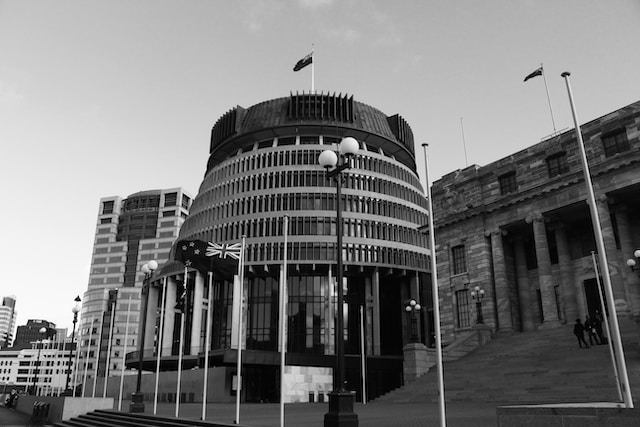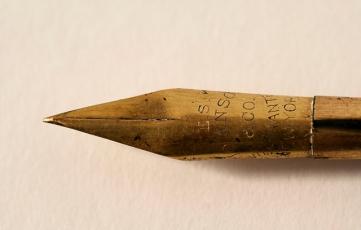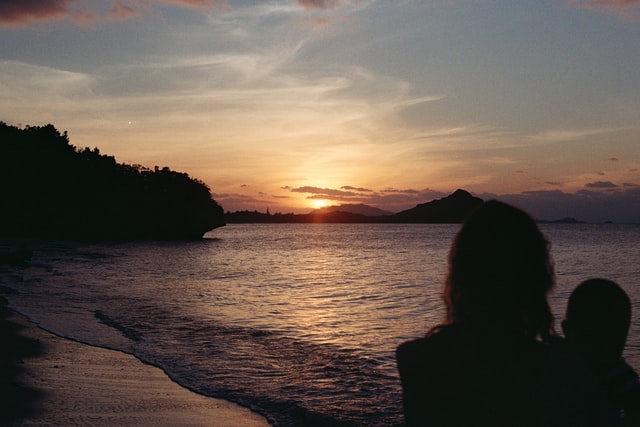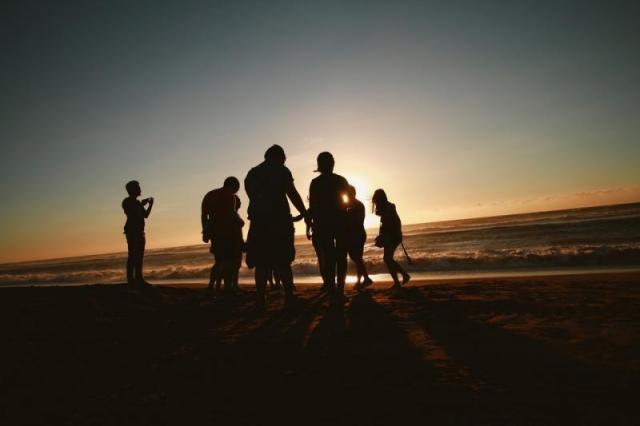Oranga Tamariki Act section 7AA and Iwi partnerships
Tue 28 May 2024
This story explains what Oranga Tamariki Act section 7AA is with a focus on Iwi partnerships. We highlight examples of Iwi partnerships.
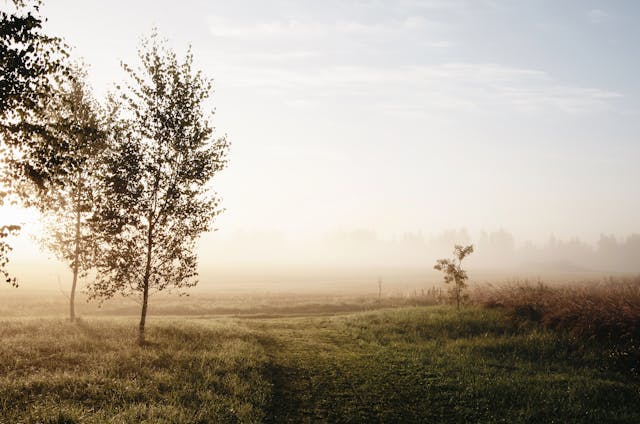
This is part 2 of a 3-part series that provides an overview and background related to section 7AA, and the care and protection system in Aotearoa. Part 1 looks at the proposed repeal of Oranga Tamariki Act section 7AA including the new legislation, call for submissions and Waitangi Tribunal report. Part 3 looks at Child care and protection in Aotearoa: history of institutional racism and calls for transformation.
Iwi partnerships and Oranga Tamariki Act section 7AA
The government has introduced legislation to repeal section 7AA of the Oranga Tamariki Act, and submissions are open on the proposed legislation. Tangata whenua and many tangata tiriti advocates and researchers have criticised the proposal to repeal section 7AA. We provide an overview of what section 7AA is, and highlight examples of the strategic partnerships that have been formalised under 7AA.
What is section 7AA and why do we have it?
Oranga Tamariki works towards a vision that "All children are safe, loved, and nurtured by whānau, hapū, and iwi and supported by thriving communities." The former Oranga Tamariki CEO acknowledged structural racism in the care and protection system and the failure of the Crown to implement recommendations of Pūao-te-Ata-tū when giving evidence to the Waitangi Tribunal inquiry in December 2020 saying (quoted in the Tribunal's final report He Pāharakeke, He Rito Whakakīkinga Whāruarua, 2021):
"The Crown has failed to fully implement the recommendations of Pūao Te Ata Tū in a comprehensive and sustained manner. This implementation failure has impacted outcomes for tamariki Māori, whānau, hapū and iwi. Further than this, it has undermined Māori trust and confidence in the Crown, as well the belief in the Crown’s willingness and ability to address disparities.
Structural racism is a feature of the care and protection system which has adverse effects for tamariki Māori, whānau, hapū and iwi. This structural racism has resulted from a series of legislative, policy and systems settings over time and has degraded the relationship between Māori and the Crown. The structural racism present in the care and protection system reflects its presence in society more generally, which has meant that more tamariki Māori are reported, thus coming to the attention of the care and protection system. The impact of structural racism on outcomes for and experiences of tamariki Māori and their whanau, and on culture and trust, means that the Crown should have identified the need to tackle structural racism when establishing Oranga Tamariki.
Historically, Māori perspectives and solutions have been ignored by the care and protection system. In order to address this historic aversion, Oranga Tamariki needs to partner and engage with Māori so together they can deliver better outcomes for tamariki Māori."
Oranga Tamariki describes section 7AA as their "practical commitment to the principles of the Te Tiriti o Waitangi/Treaty of Waitangi". This is an acknowledgment that the relationships between tangata whenua and the Crown do not reflect what was agreed to in the Treaty, and that the Crown had taken from tangata whenua authority for all decisions and resourcing for the care and protection of their children. Section 7AA affirms that tangata whenua expectations of self-determination in regard to how Māori children should be cared for, are legitimate and realistic.
Oranga Tamariki describes 4 parts of their work under section 7AA. This includes "...strategic partnerships with iwi and Māori organisations, including iwi authorities." Many Iwi and rōpū had mahi focused on the toiora of their whānau and tamariki before 7AA existed, and some also had partnerships with Oranga Tamariki. The strategic partnerships under 7AA shift the relationship between Oranga Tamariki and those rōpū, returning some of the decisions, resources and responsibility to tangata whenua for care of their tamariki and whānau. Those rōpū are enabled again to imagine, design, and realise their own processes for toiora, protection and care of children, based on their own tikanga. While this is not the relationship agreed to in Te Tiriti, which affirms to hapū "te tino rangatiratanga ... o ō rātou kāinga", it is a shift in that direction.
Iwi partnerships
Section 7AA was added to legislation through 2017 amendments, and only came into effect in July 2019. As such, the practices from section 7AA are still being developed. Oranga Tamariki sees the strategic partnerships with Māori as the key mechanism for section 7AA. The formal recognition, and shift in resources and authority under 7AA, is very new, with the first agreement signed in November 2018 between Ngāi Tahu and Oranga Tamariki.
Oranga Tamariki’s most recent Section 7AA Annual Report 2023 lists 10 strategic partnership agreements:
- Te Rūnanga o Ngāi Tahu (Nov 2018)
- Te Rūnanga-Ā-Iwi-Ō-Ngāpuhi (Dec 2018)
- Waikato-Tainui (May 2019)
- Ngāi Tūhoe (Aug 2019)
- Te Rōpū Wāhine Māori Toko I te Ora (Aug 2020)
- The Eastern Bay of Plenty Provider Alliance (Sep 2020)
- Te Rūnanga o Te Āti Awa ki te Upoko o te Ika a Māui and Te Rūnanga o Toa Rangatira (Dec 2020)
- Te Kahu Oranga Whānau (Mar 2021)
- Ngāti Kahungunu Iwi Incorporated (Apr 2021)
- Te Whānau o Waipareira (Sep 2022).
Several rōpū already had strategies for supporting toiora whānau, which includes caring for children. As a result of the formal recognition of these partnerships under 7AA, rōpū have more resources and power to develop their own frameworks and priorities for supporting whānau to care for children. Many are still developing programmes or are in the first stages of implementing them. Examples of four of these are detailed below. See the related media below for updates on other Iwi partnerships with Oranga Tamariki.
Eastern Bay Iwi Provider partnership: Te Pūkaea o te Waiora
The Eastern Bay Iwi Provider Alliance is comprised of Te Tohu o Te Ora o Ngāti Awa, Tūhoe Hauora, Te Pou Oranga O Whakatōhea Tūwharetoa ki Kawerau Hauora. It was established in 2017 and has partnered with Oranga Tamariki since August 2020.
By working as an alliance, the Iwi involved can:
- Build and strengthen the resilience within whānau
- Build trust and confidence of whānau to engage
- Improve accessibility of services to whānau and reduce complexity
- Encourage collaboration among services and providers
- Work with whānau in the co-design of future services.
The alliance has developed Te Pūkaea o te Waiora, which will receive all contacts relevant to the Eastern Bay of Plenty region, rerouted from the Oranga Tamariki National Contact Centre, as well as direct calls from other local agencies such as Police, Te Whatu Ora, the community and whānau. Te Pūkaea o te Waiora builds on the partnerships with Oranga Tamariki.
Speaking to RNZ about Te Pūkaea o te Waiora, Tūhoe Hauora chief executive Pania Hetet said:
"We need to walk the talk and we know we can make a difference. We aren't Oranga Tamariki, we don't operate within their timeframes or frameworks.
"Our communities know who we are and we are in better positions to engage in difficult and challenging conversations with whānau."
Te Tohu o te Ora o Ngāti Awa chief executive Enid Ratahi-Pryor also spoke to RNZ, and said:
"We want to make a step towards changing the way the Crown and the community work together to support tamariki and whānau wellbeing. This means working at a pace that keeps the whānau engaged and invested in the process."
Te Pūkaea o te Waiora is an optional pathway for whānau Māori. Those who did not wish to engage with iwi services could choose to work with Oranga Tamariki instead. Ratahi-Pryor said:
"Regardless of what choice whānau make, the iwi involved want them to know they are there for them and they have the ability to support them through these difficult situations."
To learn more about Te Pūkaea o te Waiora see the related media below or listen to an interview with Enid Ratahi-Pryor on Waatea News.
Ngāti Kahungunu Iwi Incorporated: Te Ara Mātua
In 2019, Ngāti Kahungunu Chairman Ngahiwi Tomoana declared ‘Not one more child’—not one more child would be taken into Oranga Tamariki without Iwi intervention. Ngāti Kahungunu invited whānau to share their experiences of maintaining their whānau and interactions with the state. It captured those experiences and whānau aspirations in the Kōrero Mai Whānau report.
In April 2023, Ngāti Kahungunu launched Te Ara Mātua, their plan to support whānau through early intervention to limit whānau involvement with Oranga Tamariki. The plan is based on whānau needs and aspirations, informed by Kōrero Mai Whānau.
Ngāti Kahungunu's overview of Te Ara Mātua says:
"Whānau is the key to whānau success. Te Ara Mātua kaupapa will continue to evolve with whānau champions at the helm. Community plays a vital role in ensuring the wellbeing of mokopuna and their whānau."
Ngāti Kahungunu Iwi also has a dedicated staff member who can address specific Oranga Tamariki inquiries. Ngāti Kahungunu notes that:
"There have been some successes for whānau in this space, however, the aim is to move all Kahungunu tamariki out of care. A new design called Te Ara Mātua Looking forward the pilot between Oranga Tamariki and Ngāti Kahungunu will be the only strategy to address the inequities and inequalities that still exist for our people."
To learn more about Te Ara Mātua, see the Ngāti Kahungunu media release and related media below.
Ngāi Tahu: Whānau as first navigators
In October 2021, Ngāi Tahu announced their Whānau as First Navigators programme. It aims to reduce the number of tamariki and rangatahi interacting with Oranga Tamariki by enabling whānau rangatiratanga.
Speaking to RNZ, former Ngāi Tahu Kaihautū Arihia Bennett said whānau will be encouraged to seek support if they need extra help:
"The quickest way to be able to do that, is to actually lean into those communities' supports, lean into organisations to extended whānau, where they can actually get that support, rather than ending up in a Crown organisation or even in a bigger picture iwi organisation."
Also speaking to RNZ Kaiwhakahaere Lisa Tumahai identified several barriers for whānau reaching out:
"Access information awareness, the right support mechanisms, not feeling whakamā to actually ask for help - they're some of the things we've got to cut through."
The Ngāi Tahu Whānau as First Navigators programme has 4 workstreams:
- Prevention: a whānau awareness campaign focused on raising awareness of tamariki and whānau wellbeing, sharing knowledge and promoting services to support whānau. This has included advertising on radio, social media, Google, and letterbox drops.
- Early support: whānau interaction hubs to provide early support, information and advice to whānau in ways that suit them, with the aim of growing a culture of seeking trusted help early.
- Boost service capability: working with Ngāi Tahu and kaupapa Māori providers to grow, strengthen and build on their mahi supporting whānau towards their aspirations.
- Professional and culturally competent practitioners: workforce development with the care and protection workforce so practices have positive impacts for whānau.
The Whānau as First Navigators programme received nearly $26 million from Oranga Tamariki in 2021. Former Minister for Children Kelvis Davis said “[This programme is] iwi-lead and iwi-designed, but it’s Crown-supported.”
For more information see the Ngāi Tahu media release and Beehive media release about launching the programme.
Ngāpuhi: Kia tū tika ai te Whare Tapu ō Ngāpuhi
Te Rūnanga-Ā-Iwi-O-Ngāpuhi and Oranga Tamariki signed a Strategic Partnership Agreement in December 2018 in Kaikohe. Ngāpuhi Iwi Social Services (NISS) and Te Rōpū Whāiti have been developing a Ngāpuhi strategy for growing mokopuna wellbeing. The Ngāpuhi 2023 annual report says the vision for their strategic partnership with Oranga Tamariki is
"‘Kia tū tika ai Te Whare Tapu Ō Ngāpuhi – where the sacred house of Ngāpuhi stands strong’. For Ngāpuhi, this means working together to ensure there are no Ngāpuhi taitamariki in state care and being more involved in decision-making that affects Ngāpuhi tamariki and whānau."
Te Rōpu Whāiti includes Ngāpuhi iwi and hapū members, Ngāpuhi leaders from the social services sector, professionals, representatives of Te Rūnanga-Ā-Iwi-Ō-Ngāpuhi (TRAION) trustees and subsidiaries NISS and Te Hau Ora Ō Ngāpuhi (THOON). This rōpu came together in 2022 with TRAION to plan a response to growing disparities and urgent issues faced by Ngāpuhi tamariki mokopuna and whānau engaged with Oranga Tamariki.
Work so far has included investing in Ngāpuhi Iwi Social Services workforce development, and designing a whānau care service to ensure Tamariki who need care can live safely with carers who share whakapapa connections with them. This work builds on a Memorandum of Understanding signed in 2014 and the launch of Mahuru.
Mahuru is a one-to-one placement with Ngāpuhi kaimanaaki who provide a safe home for taitamariki for up to 4 to 6 weeks while they are on remand within the Youth Justice system, and immerses taitamariki in mana-enhancing activities including a tikanga Māori day programme where they are supervised by experienced mentors to achieve goals within their individual plans. Learn more about Mahuru.
Progress implementing 7AA
As part of the legislation, Oranga Tamariki must report each year on progress to implement section 7AA. There have been four 7AA progress reports so far. In the foreword of the 4th report, Oranga Tamariki Chief Executive Chappie Te Kani said:
"This report shows how we are changing and growing to realise our Treaty of Waitangi / Tiriti o Waitangi obligations."
And
"As the Chief Executive it is important for me that we report back on this mahi and how it is improving outcomes for tamariki and rangatahi. Transparency, continuous improvement, and dedication will remain critical to our journey to transform ourselves into an organisation that truly meets the aspirations of our partners and the public in how we provide care and support for tamariki and rangatahi in New Zealand."
Related news
Minister for Children, Karen Chhour has introduced legislation to repeal Oranga Tamariki section 7AA on 12 May 2024. The legislation has passed the first reading and submissions are open.
The Pou Tangata Oranga Tamariki Iwi Leaders Group (ILG) and the National Iwi Chairs Forum issued a statement opposing the repeal of section 7AA of the Oranga Tamariki Act with Dame Naida Glavish, Co-Chair of Pou Tangata saying:
"The introduction of the Oranga Tamariki (Repeal of Section 7AA) Amendment Bill to Parliament is deeply concerning and undermines the crucial relationships established between Oranga Tamariki and Iwi under Te Tiriti o Waitangi."
Robyn Rauna, Oranga Tamariki ILG Lead Advisor also said:
"The assertion by the Minister for Children that these partnerships will continue under a different framework makes no sense at all; if that were the case, leave Section 7AA in the legislation."
See our related news story for more information about and responses to the proposed repeal of section 7AA.
Related media
Iwi-led support hub for tamariki Māori in state care opens in Hastings, NZ Herald, 19.07.2024
7AA Repeal Submissions, Te Hiku Media, 24.06.2024
Oranga Tamariki Act section 7aa: The agony of the untold story - Helen Leahy, NZ Herald, 12.06.2024
‘Not one more child’, E-Tangata, 26.05.2024
Māori community secondment to Kaitaia Oranga Tamariki Office, Te Hiku Media, 13.05.2024
Co-location brings social work to marae, Waatea News, 13.05.2024 (also see the Waatea News full interview with Maraea Ropata, General Manager of Te Atiawa Iwi Social Services)
‘Shifting the front door’ for child services, SunLive, 14.03.2024
Iwi takes call centre role from Oranga Tamariki, Waatea News, 12.03.2024
Oranga Tamariki-iwi provider alliance behind Whakatāne’s new contact centre, Stuff, 11.03.2024
Let’s be in solidarity together, Aotearoa, E-Tangata, 17.12.2023
Tihei: Governance Group will provide oversight for Te Ara Mātua, NZ Herald, 25.09.2023
Ngāpuhi eyes Oranga Tamariki alternative, Waatea News, 12.07.2023
Iwi-led plan transforms the way whānau are supported, Oranga Tamariki media release, 05.05.2023
Iwi model next step in child protection, Waatea News, 02.05.2023
Kahungunu brings whanau voice to child protection, Waatea News, 28.04.2023
Te Ara Matua, Te Hiku Media, 27.04.2023
Iwi partners with govt for more voice in uplifting of tamariki, RNZ, 26.04.2023
Iwi partnership aims to reduce cases of children being put in care, RNZ, 26.04.2023
New path for Kahungunu protection, Waatea News, 26.04.2023
Ngāti Kahungunu and Oranga Tamariki launch bespoke partnership, Beehive media release, 26.04.2023
Ngāti Kahungunu iwi to lead new whānau care initiative, Te Karere, TVNZ, 26.04.2023
$25.9m for Ngāi Tahu to reduce young South Island Māori in state care, NZ Herald, 22.10.2021
Māori Women's Welfare League partnership, Oranga Tamariki Media Release, 05.08.2020
Image: Ivars on Pexels



